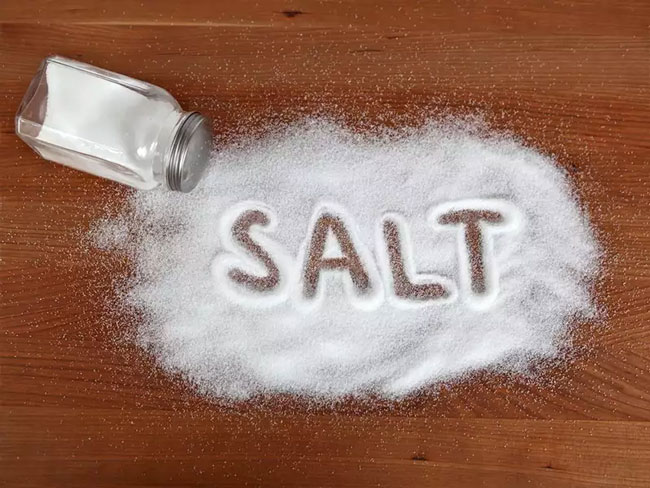Salt is an essential part of our daily diet. While other spices may come and go, salt is always present. In fact, without salt, our food feels incomplete. Salt, or sodium chloride, plays a crucial role in various bodily functions. However, just like anything else, excess salt consumption can be harmful.
According to health experts, consuming too much salt daily can lead to severe health issues. But how can you tell if you’re consuming excessive salt? The answer is simple—your body gives certain signals that indicate you may be eating more salt than necessary. Let’s look at the key warning signs:
High Blood Pressure – A Silent Killer
High blood pressure (hypertension), often called a “silent killer,” is a strong indicator that you may be consuming too much salt. Long-term excessive salt intake can lead to hypertension, which increases the risk of strokes, heart diseases, and severe liver complications. If your blood pressure frequently fluctuates or remains high, consider reducing your salt intake and consulting a doctor.
Excessive Thirst
Have you ever noticed that after eating salty foods, you feel extremely thirsty? This is because excess salt causes your body to retain water, triggering thirst. If you frequently experience excessive thirst despite drinking plenty of water, it may be due to high salt consumption.
Swelling in the Body
Too much salt can lead to fluid retention, resulting in swelling or edema. If you notice unusual swelling in your face, fingers, ankles, hands, feet, or abdomen, it could be a sign that your salt intake is too high. Checking your salt consumption is essential if you experience persistent swelling.
Changes in Urination
The effects of excessive salt intake can be observed through changes in urination. If you suddenly notice an increase in urination frequency or a darker color in your urine, it could be a sign of excessive salt intake. High salt levels put extra pressure on the kidneys, making them work harder, which results in these urinary changes.
Fatigue and Weakness
Excess salt can disrupt the body’s balance, leading to fatigue and weakness. Additionally, it can cause dehydration, which may result in severe headaches. If this issue persists over time, it could even contribute to migraines. If you notice such symptoms, it’s best to regulate your salt intake and consult a doctor if necessary.
While salt is essential for our body, overconsumption can lead to severe health issues. If you experience any of the above symptoms, it’s time to monitor your salt intake and make necessary dietary adjustments. Taking early precautions can help prevent long-term health complications.




